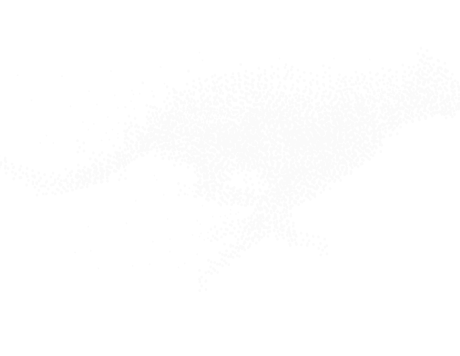Personal injury victims often need financial relief as fast as possible after an injury. This is understandable because losses such as medical bills and lost wages can start to pile up and cause serious financial strain.
However, in many states, including Connecticut, fault will impact the amount of compensation you can recover after an accident. Let’s take a look at the role fault plays in personal injury cases, especially in relation to Connecticut’s comparative fault laws.
Our team at Gould Injury Law is ready to help you and your family after a personal injury. Call us today at 888-WIN-FAST for your free consultation with our firm.

Different Types of Personal Injury Fault Systems
Every state has different laws that outline how personal injury claims and lawsuits are handled. Generally speaking, states will fall into 1 of 3 categories when it comes to fault laws: no-fault, comparative negligence, and contributory negligence.
No-fault law
In no-fault states, the injured victim makes a personal injury claim with his or her own insurance company, no matter who was at fault in the accident. States such as New York, Maryland, and Massachusetts follow such a no-fault system.
The no-fault system has been adopted in a number of states, in part, to make compensation available faster after an accident. The reasoning behind this is that a victim can recover needed compensation without first needing to prove who was at fault.
However, the type and amount of compensation available can be limited under a no-fault insurance claim. Many no-fault states only allow injury victims to file a personal injury lawsuit if the injuries reach a certain threshold.
Comparative fault law
The most common type of fault system in the United States is comparative negligence. Under this system, the amount of compensation that an injured victim can recover depends on his or her level of fault for the accident.
Comparative negligence falls under two main categories: (1) pure comparative negligence and (2) modified comparative negligence.
In pure comparative negligence states, such as California, the amount of compensation available is reduced by the percentage of fault, no matter the amount. For example, if a person was found to be 90 percent at fault in an accident, he or she could still recover 10 percent of the damages.
In modified comparative fault states, such as Connecticut, shared liability works a bit differently. While the amount of compensation available is still reduced by the percentage of fault, a person can only recover damages if he or she is not more at fault than the other party. In Connecticut, a plaintiff cannot be more than 50 percent at fault.
Let’s imagine that the total damages after an accident were $100,000. If Person A was 25 percent at fault for the accident, he could recover $75,000 in damages. However, if he were 51 percent at fault for the accident, he would not be able to recover any damages at all under Connecticut’s modified comparative negligence system.
Contributory negligence law
A few states, such as Alabama, follow a pure contributory negligence system. Under this system, a person cannot recover damages if he or she had any fault in the accident. This strict system is not common, and for good reason – it’s more difficult for injured people to get the help they need after an accident.
Since insurance companies are likely to consider the potential outcome of a court case, they are often more inclined to deny claims outright in states that follow a contributory negligence system.
How Fault is Determined
Naturally, in states like Connecticut, where fault plays a role in the amount of compensation that a person can pursue, it’s important to understand how fault is determined. Here, we will consider 3 common types of personal injury cases and how comparative negligence can impact your own claim.
Car accident
Determining fault after a car accident can involve a number of steps. First, video evidence, such as dashcam footage, may be found and reviewed. Witnesses may be identified and interviewed. Professionals such as accident reconstruction experts may be consulted as well.
In some cases, the fault may seem to be clear-cut. For example, if a drunk driver collides with your vehicle, the driver who was under the influence is presumably at fault. However, there may be other factors at play that could be used by the other party to reduce your due compensation.
Some activities that can be used to prove comparative fault in a car accident are:
- Speeding
- Distracted driving
- Driving while under the influence of drugs or alcohol
- Driving while fatigued
- Failing to follow road signs
- Incorrect use of turn signals
- Tailgating or aggressive driving
Slip and fall
In a slip and fall case, a property owner can be liable for damages if he or she neglected to correct a hazard that caused an injury. This can include failing to clear ice and snow in a timely fashion or failing to resolve or properly warn against a tripping hazard. However, a comparative negligence defense can come into play in these cases as well.
A property owner may be able to argue that the injured person was partly responsible for his or her injuries due to actions such as:
- Failing to observe the surroundings
- Failing to heed warnings
- Entering into a restricted area
Dog bite
In Connecticut, dog bite injuries fall under strict liability. This means that, unlike many other types of personal injury cases, a dog owner is liable for the harm his animal caused – whether his negligence contributed to the injuries or not.
Despite this strict liability statute, some actions could bar a person from recovering compensation after a dog bite. For instance, the victim could have been trespassing and entering a property illegally or provoking the dog.
In some situations, a dog bite victim may be able to pursue additional compensation by means of a negligence action. He would need to prove that the liable party knew the dog was vicious and failed to protect the victim. In these situations, Connecticut’s comparative negligence laws could impact the amount of compensation that can be recovered.
The Objective of an Insurance Company
Insurance companies, like all businesses, have one priority in a personal injury case – increasing profits. It stands to reason, then, that an insurance company has the incentive to reduce settlement amounts or completely deny claims.
Insurance companies will often give these tactics a try in order to pressure you into accepting a smaller settlement or even the blame for the accident. In the whirlwind aftermath of a collision, it can be tempting to take a fast settlement, but that’s when you need fast-working attorneys on your side the most – to resist the pressure.
To pressure you to accept blame
As seen in a comparative negligence state such as Connecticut, one way for an insurance company to reduce the value of a claim is to shift part or all of the blame onto the victim.
Insurance companies can take advantage of the emotional and stressful moments after an accident to collect statements, attempting to catch you saying something that could imply you were at fault. In addition, during the negotiations process, the insurance company will look for any reason to avoid paying.
To pressure you to accept a settlement
The insurance company knows how mounting expenses and bills related to the accident can make an injury victim desperate for compensation. Thus, another common tactic insurance companies use is working fast to get a settlement signed as soon as possible.
That’s why you need lawyers on your side who work even faster. The insurance company knows that, in many cases, the faster a person signs a settlement (especially before consulting an experienced lawyer), the more likely the settlement amount is less than what is owed.
One reason for this is that many injuries take time to heal fully and might require ongoing treatment. Suppose an insurance company pressures a person into signing a settlement too soon. In that case, he or she is then barred from pursuing additional compensation later, even if medical expenses end up being larger than initially expected.
Choose Gould Injury Law to Get Faster Results
At Gould Injury Law, we understand that you need and deserve compensation after an accident caused by someone else. When we take on your case, we will be determined to fight for you to receive the maximum amount of financial compensation available to you as fast as possible.
With our legal team on your side, you don’t need to take on the insurance company alone. Far from it.
We are here to answer your questions about Connecticut’s modified comparative negligence law and offer quality, reliable legal representation. Our offices in New Haven, Hartford, and Waterbury ;are ready to support Connecticut injury victims.
When you need fast help after suffering a personal injury, call the fast firm at 888-WIN-FAST for your free consultation.
